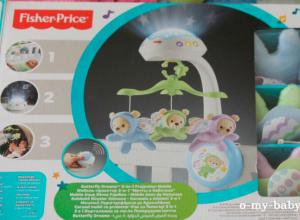Happy New Year in Japanese. Happy New Year Wishes in Japanese
For the first time our site will celebrate the New Year! I sincerely congratulate all visitors on the New Year and want to wish you to feel every day as if today is a holiday. Every day be open to new things, friendly, energetic, charging yourself and others with a good mood! All the best to you!
Let's learn how to wish Happy New Year in Japanese today, if you have a minute!
To do this, you will definitely need the following phrase:
明けましておめでとうございます!
(=Akemashite omedetou gozaimasu.)
Happy New Year!
What kind of akemashite is this?
The verb itself 明ける(=akeru) means “to begin.” The new year begins, with which we, in fact, congratulate:
おめでとう(=omedetou) congratulations
If you want to add politeness to your congratulations, then don’t forget about ございます(=gozaimasu) at the end.
Usually after this standard congratulation there is an equally standard phrase:
今年も宜しくお願いします!
(=Kotoshi mo yoroshiku onegai shimasu.)
Thank you for your good attitude (support, help) towards me next year. Please, this year too, treat me well.
There can be many translations here and it can be difficult precisely because in Russian (as in many others) there are no analogues to this phrase.
What does it consist of:
今年(=kotoshi) this year
も (=mo) too, in the same way
宜しくお願いします。
(=yoroshiku onegai shimasu.)
I ask you to love and favor me, I ask you to take care of me, etc.
Now let's say the whole congratulations! 🙂
「明けましておめでとうございます。今年も宜しくお願いします。」
Akemashite omedetou gozaimasu. Kotoshi mo yoroshiku onegai shimasu!
Great! Now you can wish Happy New Year in Japanese!
You've probably already noticed that Japanese youth don't like long words. Japanese youth love to cut things down. And such a long congratulation, naturally, was also shortened.
The short version looks like this:
あけおめ!ことよろ!
Akeome! Kotoyoro!
What is customary to give for the New Year in Japan?
For starters – postcards!
Of course, what would we do without postcards? 年賀状 (=nengajou) New Year's card with wishes. You can buy one at the post office. In addition to the pleasant feeling of receiving/sending a postcard, you also become participants in the New Year's lottery. Each 年賀状 (=nengajou) has its own number, and if you are lucky and your number is the winning one, you will receive nice 懸賞 (=kenshou) “prizes”.

On these cards you will often see the words 謹賀新年 (=kinga shinen) “happy new year” or 賀正 (=gashou) “happy new year!” But please remember that these expressions are used in writing, they are not used in conversation.
Postcards will most often feature one of the animals of the Chinese zodiac (they are called 干支(=eto).
あなたの干支は?
Anata no eto wa?
Who are you according to the Chinese horoscope?
And here are the actual names of the animals themselves:
Note that two kanji are used for each word, one for the name that is used in the horoscope, the second for the name of the animal, its normal kanji.
子(=ne) ←鼠(=nezumi) mouse, rat
丑 ←牛 (=ushi) bull, cow
寅 ← 虎(=tora) tiger
卯 (=u) うさぎ/兎(=usagi) rabbit
辰 (=tatsu) ← 龍 (=tatsu/ryuu) dragon
巳(=mi) ← 蛇 (=hebi) snake
午 ← 馬 (=uma)horse
未 ←羊(=hitsuji) sheep
申 ←猿 (=saru) monkey
酉 ← 鶏 (=tori) rooster
戌 ←犬 (=inu) dog
亥 (=i) ← 猪 (=inoshishi) boar, pig
This year, we are celebrating the year of the horse, i.e. 午年(= umadoshi)!

I often hear about some kind of お年玉(=Otoshidama), what is it?
Children in Japan receive small envelopes with money for the New Year (a wonderful tradition,ね?). This is called お年玉(=Otoshidama).

Is there any traditional activity for New Year in Japan?
Traditionally, Japanese people visit temples and shrines. The first visit to the temple in the new year is called 初詣(=hatsumoude).

I hope that you are all in this magical New Year's mood today, and, once again, I congratulate you with all my heart! See you in the new year!
Copying the article is permitted only with the placement of an active link to the site!
Copyright © 2013 All Rights Reserved - anna zarovskaya.
For the first time our site will celebrate the New Year! I sincerely congratulate all visitors on the New Year and want to wish you to feel every day as if today is a holiday. Every day be open to new things, friendly, energetic, charging yourself and others with a good mood! All the best to you!
Let's learn how to wish Happy New Year in Japanese today, if you have a minute!
To do this, you will definitely need the following phrase:
明けましておめでとうございます!
(=Akemashite omedetou gozaimasu.)
Happy New Year!
What kind of akemashite is this?
The verb itself 明ける(=akeru) means “to begin.” The new year begins, with which we, in fact, congratulate:
おめでとう(=omedetou) congratulations
If you want to add politeness to your congratulations, then don’t forget about ございます(=gozaimasu) at the end.
Usually after this standard congratulation there is an equally standard phrase:
今年も宜しくお願いします!
(=Kotoshi mo yoroshiku onegai shimasu.)
Thank you for your good attitude (support, help) towards me next year. Please, this year too, treat me well.
There can be many translations here and it can be difficult precisely because in Russian (as in many others) there are no analogues to this phrase.
What does it consist of:
今年(=kotoshi) this year
も (=mo) too, in the same way
宜しくお願いします。
(=yoroshiku onegai shimasu.)
I ask you to love and favor me, I ask you to take care of me, etc.
Now let's say the whole congratulations! 🙂
「明けましておめでとうございます。今年も宜しくお願いします。」
Akemashite omedetou gozaimasu. Kotoshi mo yoroshiku onegai shimasu!
Great! Now you can wish Happy New Year in Japanese!
You've probably already noticed that Japanese youth don't like long words. Japanese youth love to cut things down. And such a long congratulation, naturally, was also shortened.
The short version looks like this:
あけおめ!ことよろ!
Akeome! Kotoyoro!
What is customary to give for the New Year in Japan?
For starters – postcards!
Of course, what would we do without postcards? 年賀状 (=nengajou) New Year's card with wishes. You can buy one at the post office. In addition to the pleasant feeling of receiving/sending a postcard, you also become participants in the New Year's lottery. Each 年賀状 (=nengajou) has its own number, and if you are lucky and your number is the winning one, you will receive nice 懸賞 (=kenshou) “prizes”.

On these cards you will often see the words 謹賀新年 (=kinga shinen) “happy new year” or 賀正 (=gashou) “happy new year!” But please remember that these expressions are used in writing, they are not used in conversation.
Postcards will most often feature one of the animals of the Chinese zodiac (they are called 干支(=eto).
あなたの干支は?
Anata no eto wa?
Who are you according to the Chinese horoscope?
And here are the actual names of the animals themselves:
Note that two kanji are used for each word, one for the name that is used in the horoscope, the second for the name of the animal, its normal kanji.
子(=ne) ←鼠(=nezumi) mouse, rat
丑 ←牛 (=ushi) bull, cow
寅 ← 虎(=tora) tiger
卯 (=u) うさぎ/兎(=usagi) rabbit
辰 (=tatsu) ← 龍 (=tatsu/ryuu) dragon
巳(=mi) ← 蛇 (=hebi) snake
午 ← 馬 (=uma)horse
未 ←羊(=hitsuji) sheep
申 ←猿 (=saru) monkey
酉 ← 鶏 (=tori) rooster
戌 ←犬 (=inu) dog
亥 (=i) ← 猪 (=inoshishi) boar, pig
This year, we are celebrating the year of the horse, i.e. 午年(= umadoshi)!

I often hear about some kind of お年玉(=Otoshidama), what is it?
Children in Japan receive small envelopes with money for the New Year (a wonderful tradition,ね?). This is called お年玉(=Otoshidama).

Is there any traditional activity for New Year in Japan?
Traditionally, Japanese people visit temples and shrines. The first visit to the temple in the new year is called 初詣(=hatsumoude).

I hope that you are all in this magical New Year's mood today, and, once again, I congratulate you with all my heart! See you in the new year!
Copying the article is permitted only with the placement of an active link to the site!
Copyright © 2013 All Rights Reserved - anna zarovskaya.
If Japanese New Year cards often contain inscriptions in English, such as “Happy New Year”, etc., then the Japanese congratulate each other exclusively in their native language. In addition, many adhere to the old style of writing congratulations: cards are created by hand with a brush and ink, and here one cannot do without hieroglyphs :)
The text of the card depends on when you start congratulating: before the New Year (before January 1) or after.
BEFORE THE NEW YEAR COMES:
良いお年をお迎えください (yoi o toshi o mukaekudasai) I wish you a good year!
Or more informally:
良いお年を (yoi o toshi o) Have a nice year!
AFTER THE NEW YEAR:
明けましておめでとうございます (akemashite ometo: gozaimas)Happy New Year
Literally: congratulations on the beginning, on the opening (of the new year). The point is that the word 明ける "akeru" in Japanese means "to open", and the New Year is perceived as the "opening" of something new, after the completion of the old annual cycle. おめでとう "omedit:"- expresses a desire to congratulate, ございます "gozaimas"- makes the congratulation more polite and respectful.
More informally, you can wish Happy New Year by simply saying:
明けましておめでとう (akemashite omedeto:)
It will sound a little old-fashioned if you say “Happy New Year” like this:
謹賀新年 (kingasinnen) Best wishes for a Happy New Year!
Hieroglyph 謹 "Kin" means respect 賀 "Gah"- expresses joy, festive mood, 新年 "Shin-nen"- it is a New Year". It is better to use this option in writing.
And finally, the standard, polite congratulations:
新年明けましておめでとうございます (shinnen akemashite omedeto: gozaimas)
Interesting detail: The inscription is often found on Japanese New Year cards
迎春 (Geixiong)
Hieroglyph 迎 "Gay"- expresses congratulations and greetings, and the hieroglyph 春 "Xiong"- it is spring". Another illustration of the fact that in the Japanese mentality, the arrival of the New Year after the winter solstice heralds the approach of spring.
However, you should not only congratulate, but also write some wishes! Here are the most common phrases:
TO EXPRESS THANK YOU FOR YOUR KINDNESS AND SUPPORT OVER THE PAST YEAR
今年中はたい大変お世話になりありがとうございましございました
(Kyo: nen Chu: wa taihen o-sowa ni nari arigato: gozaimashita)
Thank you so much for your kindness and help over the past year.
昨年はいろいろお世話になりました
(Sakunen wa iro-iro o-seva ni narimashita)
Thank you very much for your concerns over the past year.
EXPRESSING HOPE FOR CONTINUING GOOD RELATIONS IN THE COMING YEAR
本年もどうぞよろしくお願いもしあげま
(Honnen mo doozo yoroshiku onegai moshiagemasu)
I ask you to love and favor me in the coming year.
今年もよろしく
(Kotoshi mo yoroshiku!)
And in the coming year, I ask you to love and favor!
今年も仲良くしてね/仲良くしような/いっしょに遊ぼうね!
(Kotoshi mo nakayoku site ne/nakayoku siyo: na/isshoni asoboo ne!)
And in the coming year we will maintain good relations (be friends)/have fun, go for a walk!”
This wish is often used by children.
WISHES OF GOOD HEALTH, HAPPINESS, ETC.
皆様のご健康をお祈りもしあげます
(Minasama no go-kenkoo o o-inori moshiagemasu)
Literally, “We pray for your health.”
今年も良い年になりますように!
(Kotoshi mo yoi toshi ni narimasu yo: ni!)
May the coming year also be successful!
How to wish Happy New Year in Japanese..? Today, despite the fact that there are as many as 31 days until the New Year, it was decided to make 2 thematic holiday publications. The first of the publications is dedicated to the New Year, congratulations and cliché phrases associated with New Year's days.
The publication begins with a phrase that 99% of everyone who studies Japanese probably knows:
明けましておめでとうございます (あけましておめでとうございます)
- Happy New Year!
Additional details for this phrase:
** This phrase cannot be used before the New Year! It is often followed by the phrase 今年もよろしくお願いします (ことしもよろしくおねがいします) - please, this year I am under your protection (subtexts: I ask you to love and favor me this year too / continue to shower me with good deeds this year in the same spirit). As the year ends, this answer will sound extremely strange
Of course, synonymous phrases should also be mentioned:
明けましておめでとう (あけましておめでとう)
- Happy New Year! (as you understand, without ございます the phrase takes on a more informal connotation. Of course, like the full version, it applies to congratulations, immediately after 12 am on January 1st and nearby days according to the calendar)
新年おめでとうございます (しんねんおめでとうございます) - Happy New Year. Less common phrase, but can be used as a substitute for 明けましておめでとうございます in formal situations
新年明けましておめでとうございます (しんねんあけましておめでとうございます) – Also a formal greeting for the New Year. The use of this phrase is considered a grave mistake. Therefore it should be avoided! And yet they use it! It is for this reason that this cliché was added: you happen to hear from native speakers, but textbooks say the opposite? Don't be scared! !

All of the above phrases refer to ordinary speech. The written format has its own cliché phrases:
謹賀新年 (きんがしんねん) – it’s better to start paper and email letters with this cliche.
Finally, a lot of things were said about Happy New Year After midnight. What about our “Happy New Year”?(what is pronounced before January 1st). There is an analogue.
良いお年をお迎え下さい (よいおとしをおむかえください) – Literally: it’s good for you to celebrate the New Year. However, this is a formal version of the wish
Among close people it is better to use:
良いお年を ! (よいおとしを)
- Nice to meet you! (I would like to give our analogue: Happy New Year)
Of course, the story would not be complete without congratulations among the talkative and informal youth: あけおめ, this is a fairly common slang abbreviation for Happy New Year (the answer or continuation, of course, will be ことよる 、also shortened version).
Also, one of the popular cliche phrases can be called: 新年が良い年でありますように (しんねんがいいとしでありますように) - May the coming year be wonderful!
And also one of the useful cliche phrases can be the phrase: Well, is everything ready for you to celebrate the New Year? お正月を迎える準備をしていますか? (おしょうがつをむかえるじゅんびをしていますか)
Well, one more phrase, since it is customary to wish happiness on the New Year, you can wish it with the phrase 幸運をお祈りしています(こううんをおいのりしています) – I pray for your well-being

Also, if you are planning to give a gift for the New Year holidays, you can learn phrases that will be useful in communication, where you need to know phrases related to etiquette:
つまらない ものですが、どうぞ。 (this is a small thing, but still: please take it... and hold out the gift).
Also another cliché phrase for giving gifts: きもち だけですが、 どうぞ。 – here, from the bottom of your heart (and you hold out the gift).

It is also worth adding accompanying phrases of congratulations: 良い冬休みを! (よい/いいふゆやすみを) - Have a nice winter holidays!
Well, or simply: happy holidays to you 良い休暇を! (よい/いいきゅうかを!)
More options for wishing you good holidays:
たのしいきゅうかを! – I wish you a good holiday (more informal option for friends)
But for a formal speech it is more suitable
よい休暇をお過ごしください (よいきゅうかをおすごしください)

This content is partially non-unique, the rights belong to tokado.ru, you can also link to this site, because the content writer is your humble servant. One way or another, this content is published with the permission of Tokado, which means you cannot copy the content without appropriate changes.
Congratulation. Japanese and Russian New Year haiku and tanka
Our dear subscribers and guests! Happy New Year 2019! In honor of the holiday, wishes!
May 2018 bathe you in an ocean of positivity and light, bring you a great mood and 365 days filled with happiness! Don’t be afraid to dream and strive for your goals, we wish you the energy to fulfill all your plans!
Let the projects you have started be sure to be implemented, and there will always be time and opportunity to do your favorite things, which are necessary for a new portion of inspiration! May every new day bring dozens and hundreds of reasons to smile and laugh!
Maybe there were difficulties in 2018. Fujiwara Kiyosuke writes about past tests in a soy tank:
Maybe one day
I will also these days
Remember with sadness.
After all, the sorrows of previous years
Now dear to my heart.
We could have achieved the goals set in 2018 and not achieved them.
Jun Hammi about his formation and achievements:
Tree,
which became a zither,
and the tree that did not become a zither,
who is sadder
hear the sound of the sea?
Jun Hammi, 1939
Of course there were happy moments in 2018.
friend's letter -
suddenly in the middle of the ocean
the wind died down
a friend's letter
the wind amidst the ocean —
holding his breath
Sabaka Saseda
Now we are all preparing for the holidays!
the cat would have seen
like a mistress at the market
smells fish!
Boruko
We, like Issa, are waiting for the coming of the New Year, and together with the arrival of the holiday, we are waiting for the return of those feelings and experiences that gripped us as children on the New Year.
How I want
become little again this morning! —
New Year has come...
(Issa)
When it was easy to think:
What a surprise! —
In the palm of a gnome
Snowflake…
(Oleg Yurov)
This day presents an opportunity for hospitality.
The moon has come out
And every small bush
Invited to the holiday -
And Soma Seyushi says:
Ah New Year!
Dust in the room -
and she is beautiful!

Longevity and wisdom from Fukurozhin! 
Hijikata Toshizo (Japanese 土方 歳三(ひじかた としぞう)?, May 31, 1835, Tamagun, Musashi Province (now Hino, Tokyo Metropolis area) - June 20, 1869, Goryokaku Fortress, Hakodate) - a talented Japanese military leader, second in rank commander of the Shinsengumi, great swordsman, one of the leaders of the traditionalist rebellion against the Meiji Restoration.
lane Olga Chigirinskaya
33
New Year holidays.
I walk along the road and above it
A kite flutters.
***
This is New Year's day
That he finally came -
Just one more day.
Horo
*
The New Year has arrived;
There is a simple hut,
I have nothing to wish for.
Nanshi
*
New Year:
What I feel
Beyond words.
*
day of light
Begins to shine
From the heads of sardines.
Buson
*
This is good, and that is good too -
New Year
In my old age.
Royto
*
First day of the year:
And I remember
A damp autumn evening.
Basho
*
New Year;
Work table, pieces of paper -
Just like last year.
Matsuo
*
First day of the year;
Through the doors of my shack
Barley field.
Sokha (Shoha)
*
Stream in the fields -
Oh, the sound of flowing water!
New Year.
Raizan
*
I stick my staff in
Into the quagmire
The first sun of the year.
New Year:
What luck! luck!
Pale blue sky!
*
New Year;
There's no hate in me
To those who trampled the snow.
Yayu
*
In my hands is a plum blossom branch
Says congratulations
Happy New Year.
Shiki
*
Smoke
Now creating
The first sky of the year.
*
First dream in the New Year;
I keep it a secret
Smiling to myself.
Translation - E. Kuzmina © When using my translations, a link to the site http://elenakuzmina.blogspot.com/ is required
Friendly company -
three monkeys meet
New Year… -
(Taneda Santoka / Alexander Dolin)
On a bare tree
crow - here
and the New Year has passed...
(Taneda Santoka / Alexander Dolin)
Japanese songs
New Year's pines,
You are milestones
On the way to the Beyond.
Because you are our joy,
Therefore there is sadness in you (Ikkyu, 15th century)
Balmont lane
The most modest flowers
I bought it for five sen and returned -
I'm spending New Year's Eve
alone at home,
contemplating the bizarre frost...
Shaku Choku Translation by A. Dolina
The poetry of the famous philologist and ethnographer Origuchi Shinobu, better known in literary circles under the pseudonym Shaku Choku (1887–1953), represents a most interesting page in the history of tanka of the 20th century.

Russian haiku
Upside down
One more page.
New Year's snow.
Boris Akunin
The trill of the telephone will not stop,
Something strange is happening!
The girls want a New Year...
***
Today I looked outside the window -
The holiday will be with snow!
Lord, this is a miracle!!!
Based on Internet materials
Warms like haiku
sparkling champagne
on New Year's Eve.
Related posts:
Throughout my life, I have had the opportunity to study a lot and constantly work with new information. I took part in expeditions to the Tyumen North to collect materials on the languages of the peoples of the North, their culture and beliefs. She also repeatedly participated in scientific seminars in Novosibirsk (on the languages of the peoples of the North), Tomsk, Novokuznetsk, and Moscow. She has been involved in teaching and lecturing for many years. Translated poetry from English. There are publications. She completed an internship in Latin and Classical Studies at Moscow State University. Taught at Omsk State University. Attended Tai Chiquan training in the early 90s. in 1993-1994 she was a member of the Transnational Radical Party (TRP), whose official name is Nonviolent Radical Party, Transnational and Transparty (NRPTT). Within the UN, the party fought high-profile battles on several issues: a moratorium on the death penalty, as well as a proposal for its complete abolition, fair justice and others. I took part in collecting signatures for petitions to ban the death penalty in Russia.
Latest site materials
Experience

Maternity leave: what is meant by it?
Every expectant mother should have complete information on how and when to go on maternity leave. Such matters need to be organized in advance and not rushed, and many women simply do not know how many weeks they go on maternity leave in 2016. Most have heard more than once
Health

Statement of claim for divorce In what cases is a claim for divorce filed in court?
Family legislation in Russia establishes freedom for citizens in matters of marital relations. There is no legal norm prohibiting divorce, even with children. However, due to circumstances, the procedure for terminating family relations between citizens
Health

Kids games Coloring by numbers for kids online
In this section you can print coloring by numbers for children aged 4, 5, 6, 7 years. This is a more complicated version of coloring books containing more picture elements and colors. Coloring pages have a variety of themes: animals, birds, fish, flowers, plants and fairy tales
Experience

How to properly perm your hair at home?
Perm is a special procedure of applying chemicals to the hair, affecting its natural structure. The fact is that in cross section, curly hair is an oval, and straight hair is a circle. The purpose of perm is to change such a
Cosmetology

Tool bag - what should be in it?
Many men have faced the problem of storing, carrying tools and ease of use. Of course, you can buy a tool bag in a regular store, but it will be much nicer if you make it yourself. Yes, and in this case you l
Cooking

Mobile from Fisher Price “Dreams of Butterflies”
When my baby was born, I didn’t even think about buying a mobile phone. I thought that my son would not be interested in listening and watching. But I saw my godmother have a very beautiful carousel on her daughter’s crib, the daughter was very interested in the toy, and I wanted it